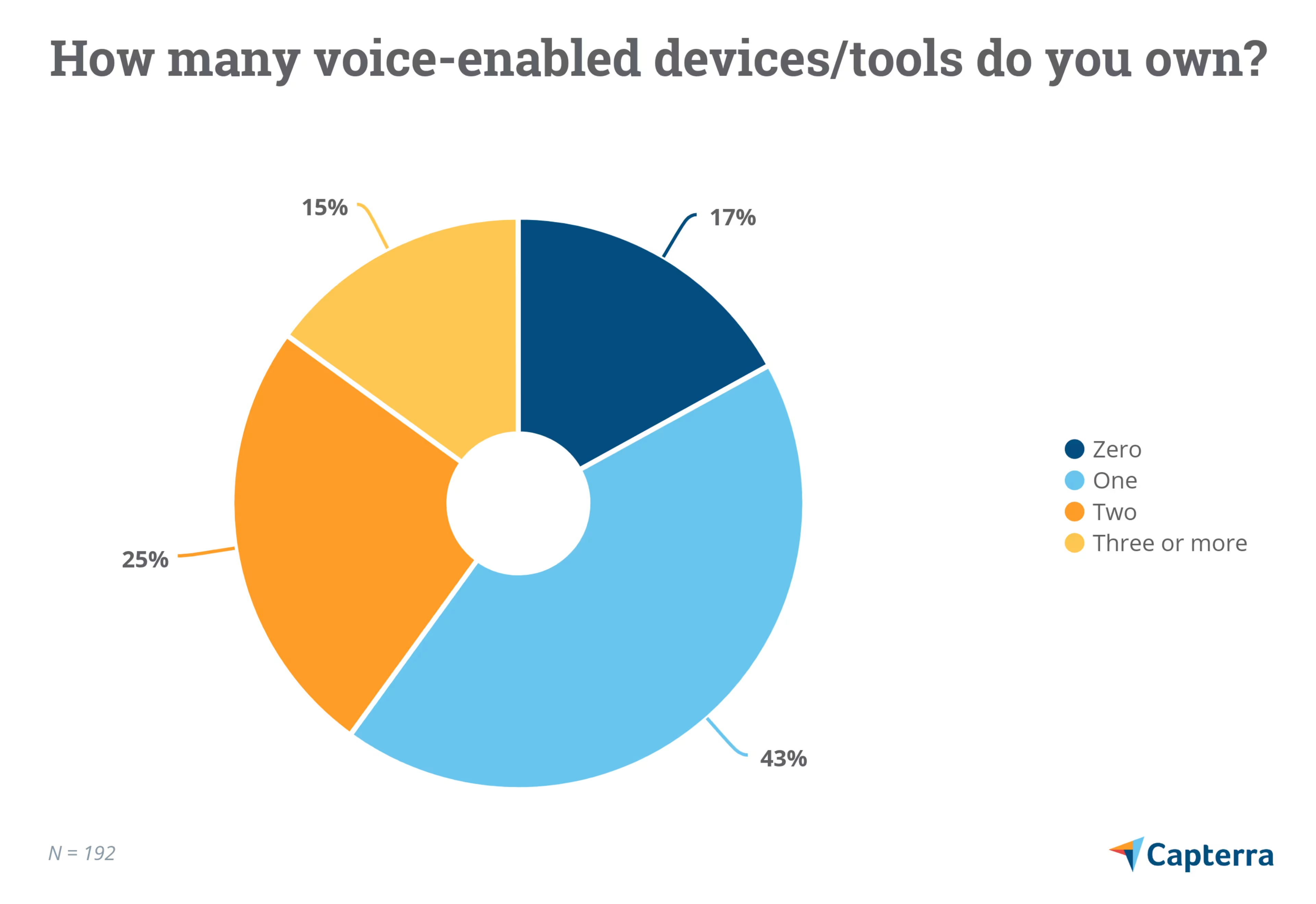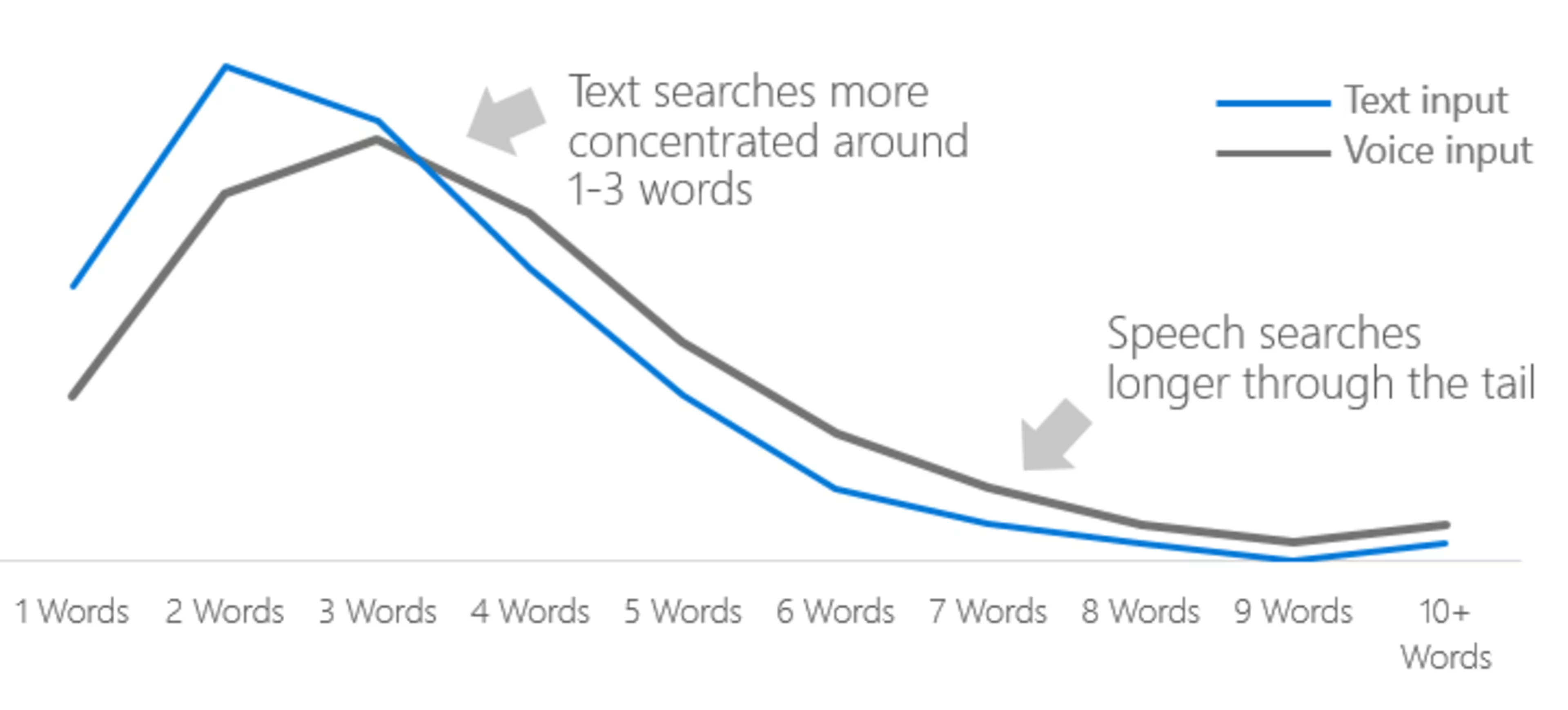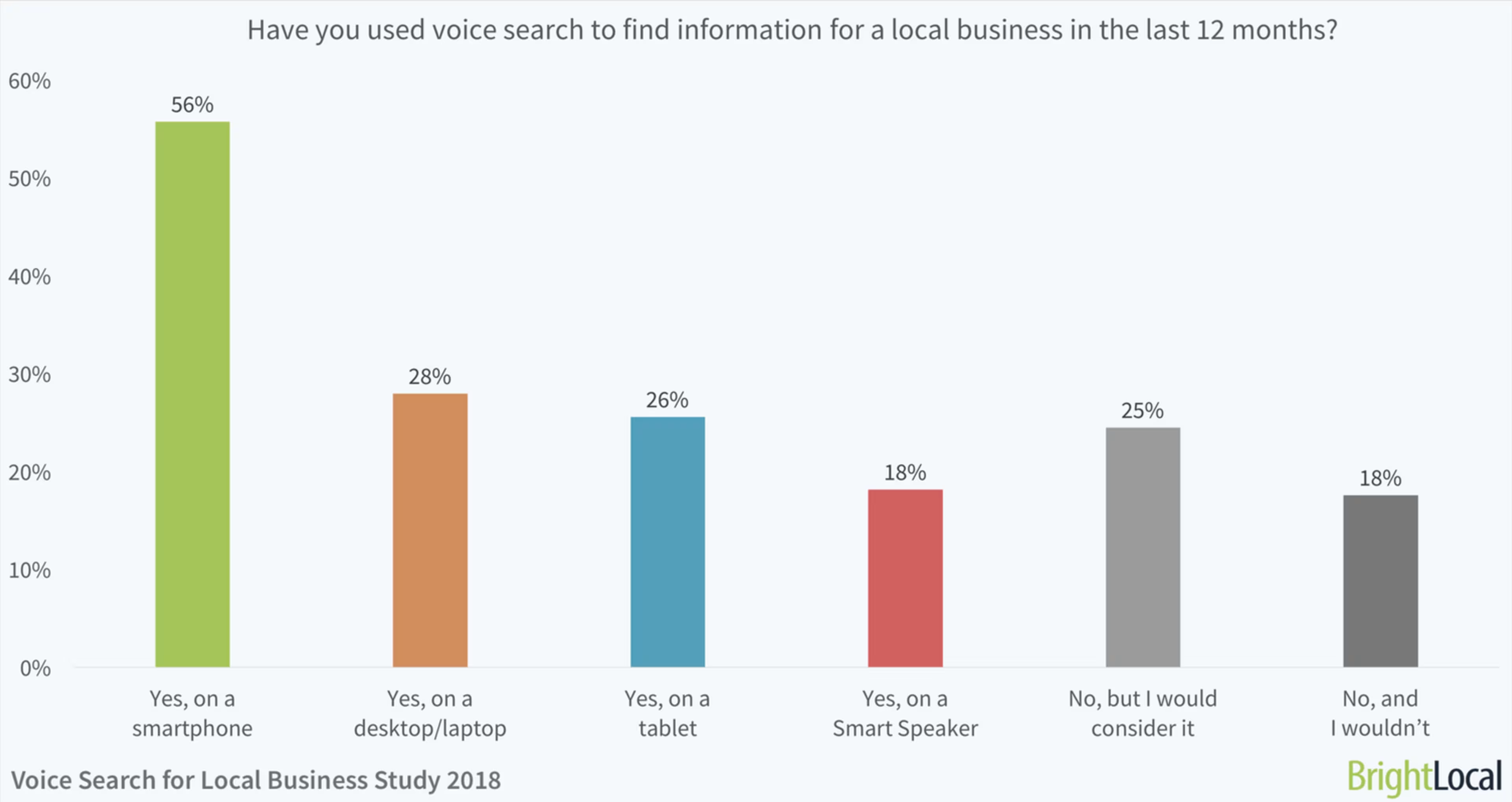Voice search is here, and it's changing the SEO game. Here's how your business can keep up with these changes.
What is voice search SEO?
Voice search SEO, also referred to as voice search optimization, is the practice of ensuring that your content and marketing collateral ranks highly in the search engine results for voice queries.
Look around the space you're in right now. Do you see an Amazon Echo, or a Google Home device? How about a smartphone or tablet?
Voice-enabled tools are not just here, they are thriving. It should come as no surprise that both Google and Microsoft report voice searches as more than 20% of overall search traffic.
Maybe we like voice search because it feels one step closer to the dream of true artificial intelligence. Or perhaps it has more to do with our appetite for faster ways to "get things done."
Either way, it is the future of search queries, which means your business needs to optimize for voice search.
Let's answer three key questions about voice search SEO.
Alexa:
Why should you care about voice search SEO?
The data is clear: Voice search is no longer just a trend for your SEO team to think about if they have time. With the skyrocketing popularity of voice-enabled devices (think Alexa, Siri, and Google Home), billions of voice search queries are made every month.
Gartner predicts that by the year 2020, voice search will account for over half of search queries (full report available to Gartner clients).
Capterra's new survey data supports this prediction as well. We surveyed 192 residents of the U.S. and Canada, and 83% report owning at least one voice-enabled device.

It's not just ownership. Survey respondents report that they are using this feature as well: 60% use their voice-enabled devices(s) at least three times in any given month, and 25% indicate they use a voice assistant feature more than 10 times a month.
What's so different about voice search?
Instead of having a long conversation about human behavior, allow me to channel Bill Nye as I ask you to consider the following:
The way you search for something or how you ask a question differs based on how you communicate with the search engine.
Gartner explains it this way (full report available to Gartner clients):
Accounting for the impact [voice search] will have in queries is vital for brands. It's important to review not only the specific makeup of their campaigns, but also how voice-based search affects the intent around specific keywords, with special attention to local context as well as colloquial context.
In other words, pick a query. It doesn't matter if you're checking the weather forecast or ordering a pizza—the way you verbally phrase your question will be different than how you would type it into a search bar.
Typed on a keyboard, your question might be, "10-day weather forecast for Arlington, Va."
That same question spoken out loud to your Alexa or Google Home would sound more like "Hey Alexa/Google, what's the weather going to be like this week?"
While your intention as the pizza buyer/amateur meteorologist may be the same, how you ask the question matters a great deal to search engines such as Google.
Studies show voice queries tend to use more words than text-based searches, as depicted in the graph below:

Length of query in text query vs. voice (Source)
In our recent survey, we also asked respondents what they're using voice search for. Two major numbers stand out:
The majority of respondents (68%) use a voice assistant for information queries.
Nearly a quarter (23%) of respondents use a voice assistant to make purchases.
If your online content isn't optimized for voice search, all of those queries pass you by, and your business misses each and every one of those opportunities for brand recognition, subject matter authority, and sales.
Here's how to fix it.
How to optimize for voice search
Want to optimize your content for voice search? Make sure you take these four steps:
1. Invest in SEO software
There are a ton of great options if your business is looking for SEO software.
SEO software helps your content and marketing teams track the performance of their content, analyze strategic keywords, and plan future marketing collateral around exactly what potential customers are searching for.
For a holistic view of how your content is performing, we recommend looking for SEO software that integrates with Google Analytics.
Pro tip
Don't feel limited by a tight budget. Check out these free SEO software options.
2. Make sure your webpages load quickly
In truth, this is important whether you're looking to capture voice queries or traditional text searches.
For nearly a decade, Google has indicated site speed as one of the signals used by its algorithm to rank pages.
A slow loading speed means that search engines can't crawl your content as effectively, which could negatively affect your indexation.
It's also worth considering how page speed can negatively impact user experience. A slow load speed is a bad first impression, and will likely lead to a higher bounce rate and fewer conversions.
Pro tip
For a quick diagnostic on your page speed, check out Google's PageSpeed Insights and analyze your website.
3. Concentrate on local searches
Voice search can have a huge impact for local businesses. BrightLocal did an excellent survey last year asking over a thousand consumers about their use of voice assistants and smart speakers. The results were very promising for local business.

Graph depicts use of voice queries to make a local search (Source)
That same survey also discovered that 76% of smart speaker users perform local voice searches at least weekly.
The best thing your business can do to take advantage of these local searches is to make sure your business is listed.
When voice queries are made for a local business (Hey Google, where's the closest coffee shop?) search engines look for business listings and reviews.
Sites such as Yelp and Facebook are a great place to foster a healthy local footprint for your business and garner positive reviews.
Pro tip
Make sure you've claimed your business on Google's My Business, and check to see that your business name, phone number, address, and hours of operation are all up to date.
4. Diversify your content
The gig is up: Google doesn't like articles that feature long, unbroken blocks of text.
When you ask your phone, "Hey Siri, how do I cook a whole chicken?" are you looking for three-thousand words on the history of chicken roasting techniques from around the globe?
Hey, if you are, bless your nerdy heart. But most of us just want to know what temperature to set the oven.
Google knows this and will prioritize and rank search engine results pages (SERPs) accordingly. Here are some quick tricks:
Add a bulleted list (like this one) to help break up otherwise heavy paragraphs.
Use natural language patterns—voice queries tend to follow organic speech patterns.
Repeat your keywords early and often to help Google recognize what question your content is answering.
Pro tip
Want your software to help you out? Look for SEO software that includes a content management feature.
Thinking about hiring an SEO company to help your business implement voice search SEO? Browse our list of top SEO companies and learn more about their features in our hiring guide.